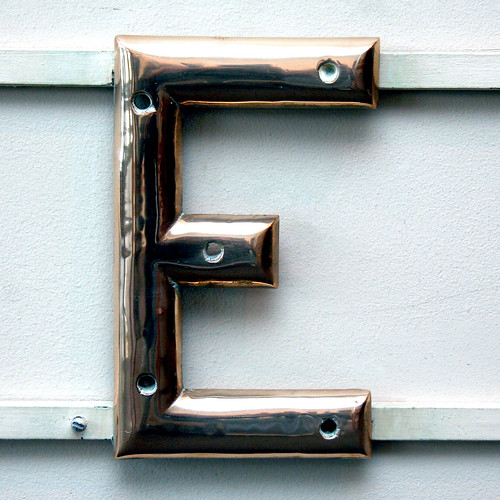» Intent and Will
25 June 2006 @ 10:59 AM with

Intent is an energy. It is a very simple energy in one sense, but its expression through personality and perception can be quite complicated. If we borrow a chorus from the Newtonian Physics Songbook, we know that energy can neither be created nor destroyed; it can only be changed in form. Spiritually this opens up a really big can of worms. If intent is an energy, and that energy is essentially forming human beings and is expressed as such, then it must remain as intent until something with greater energy acts upon it - acting from outside to overcome the stasis of inertia, thereby creating movement, either in another direction or along the same line of travel created by the original expression of the intent. Ergo, any intent, as energy formed and expressed as a commonality, must remain in existence through both time and space until acted upon by a greater force, which will either change the nature of the intent into something else, fortify the original intent or simply move it in another or the same direction.
Will is a crucial element of personal energy, for the simple reason that when we exercise intent, we naturally apply will to the effort. One cannot form and execute intents without will, but one can apply will without intent. If intent is the gun then will is the trigger. Will, as a separate part of our personal energy, is crucial in the process of linking the larger rational mind with the more primitive and unknown energies of the hidden sides of our nature. If intent is the sword of reason, then will is the forge of the soul.
Intent and will are like this in relationship; if you intend to drive a nail, the hammer and your muscles are the vehicles of the intent, but how hard you hit the nail is a function of will. The decision to hit the nail is the intent, but the actual animation of the intent to strike it is the will. Without the will, nothing moves. It's a hard distinction to make, they seem the same, but they are not. As you work with intent, you will discover that there is a subtle but very powerful difference. Let's take an issue of self-improvement for instance. Say you had temper and anger issues that certain situations were sure to trigger. The intention to become more detached and handle these situations by not reacting the same way would be the intent. Applying it daily and reinforcing it would help make the intent strong, but when the situation arises that would normally trigger the anger issues, it is will which is applied to trigger the intent, allowing it to work as energy in the situation. In other words, 'I intend not to let this make me angry,' then the circumstances occur and in that moment you apply will to not become angry, thereby triggering the intent. The process of learning to control that is also one of learning to apply will to your own energy, which if you are lucky revolves around an intent.
Will and intent are two separate things. Each of us already operates on many levels of intent naturally. You breathe and your heart beats without you thinking about it; the intent to do so is natural. Will is like the fuse; intent is the bomb. You have to gather up your materials and make your bomb before the fuse is worth anything. Will is applied to intent not the other way around. You can have the will to be successful, but if you don't create the intent on what and how to get there the will won't help. Wanting has nothing to do with it, it's what you intend to do that starts everything. But look at the different types of intent. There is natural intent, personal intent, conscious/unconscious intent and the issue of competing intents.
Intent is a conscious form of will; it has shape, form, and substance. Will acts as a volitional trigger for the intent you have formed. In other words, you can think an intent, but it is will that shoves it out there. It's like when you recap an event that is tied to a pattern that runs outward in your life, but you don't move through the pattern but keep working on the same event, the other energy comes to you like sand falling through a hole in the bottom of a bucket. This brings back to you depression, anger, etc., those feelings have weight, they exist and you can be swamped with them sometimes. It's like the thought you haven't completed, or pushed out with will, you can become inundated by the old energy in patterns you weren't expecting. You're using unspoken intent to do the recapping, but when will is applied to the intent to take back your energy it can bring back energy also trapped in those other patterns - like the thoughts that stayed in the room, you will feel them. Big patterns can be tough. You may see the energy you want back and grab it, but it turns out to be the stopper in the bottom of a bottle of related energy. It can be hard if you have a lot stored up there, but it will pass. You can think of will as an act - a real force in your energy.
[ Source: Shaman's Cave ]
Will is a crucial element of personal energy, for the simple reason that when we exercise intent, we naturally apply will to the effort. One cannot form and execute intents without will, but one can apply will without intent. If intent is the gun then will is the trigger. Will, as a separate part of our personal energy, is crucial in the process of linking the larger rational mind with the more primitive and unknown energies of the hidden sides of our nature. If intent is the sword of reason, then will is the forge of the soul.
Intent and will are like this in relationship; if you intend to drive a nail, the hammer and your muscles are the vehicles of the intent, but how hard you hit the nail is a function of will. The decision to hit the nail is the intent, but the actual animation of the intent to strike it is the will. Without the will, nothing moves. It's a hard distinction to make, they seem the same, but they are not. As you work with intent, you will discover that there is a subtle but very powerful difference. Let's take an issue of self-improvement for instance. Say you had temper and anger issues that certain situations were sure to trigger. The intention to become more detached and handle these situations by not reacting the same way would be the intent. Applying it daily and reinforcing it would help make the intent strong, but when the situation arises that would normally trigger the anger issues, it is will which is applied to trigger the intent, allowing it to work as energy in the situation. In other words, 'I intend not to let this make me angry,' then the circumstances occur and in that moment you apply will to not become angry, thereby triggering the intent. The process of learning to control that is also one of learning to apply will to your own energy, which if you are lucky revolves around an intent.
Will and intent are two separate things. Each of us already operates on many levels of intent naturally. You breathe and your heart beats without you thinking about it; the intent to do so is natural. Will is like the fuse; intent is the bomb. You have to gather up your materials and make your bomb before the fuse is worth anything. Will is applied to intent not the other way around. You can have the will to be successful, but if you don't create the intent on what and how to get there the will won't help. Wanting has nothing to do with it, it's what you intend to do that starts everything. But look at the different types of intent. There is natural intent, personal intent, conscious/unconscious intent and the issue of competing intents.
Intent is a conscious form of will; it has shape, form, and substance. Will acts as a volitional trigger for the intent you have formed. In other words, you can think an intent, but it is will that shoves it out there. It's like when you recap an event that is tied to a pattern that runs outward in your life, but you don't move through the pattern but keep working on the same event, the other energy comes to you like sand falling through a hole in the bottom of a bucket. This brings back to you depression, anger, etc., those feelings have weight, they exist and you can be swamped with them sometimes. It's like the thought you haven't completed, or pushed out with will, you can become inundated by the old energy in patterns you weren't expecting. You're using unspoken intent to do the recapping, but when will is applied to the intent to take back your energy it can bring back energy also trapped in those other patterns - like the thoughts that stayed in the room, you will feel them. Big patterns can be tough. You may see the energy you want back and grab it, but it turns out to be the stopper in the bottom of a bottle of related energy. It can be hard if you have a lot stored up there, but it will pass. You can think of will as an act - a real force in your energy.
[ Source: Shaman's Cave ]




















Post a Comment
<< Home